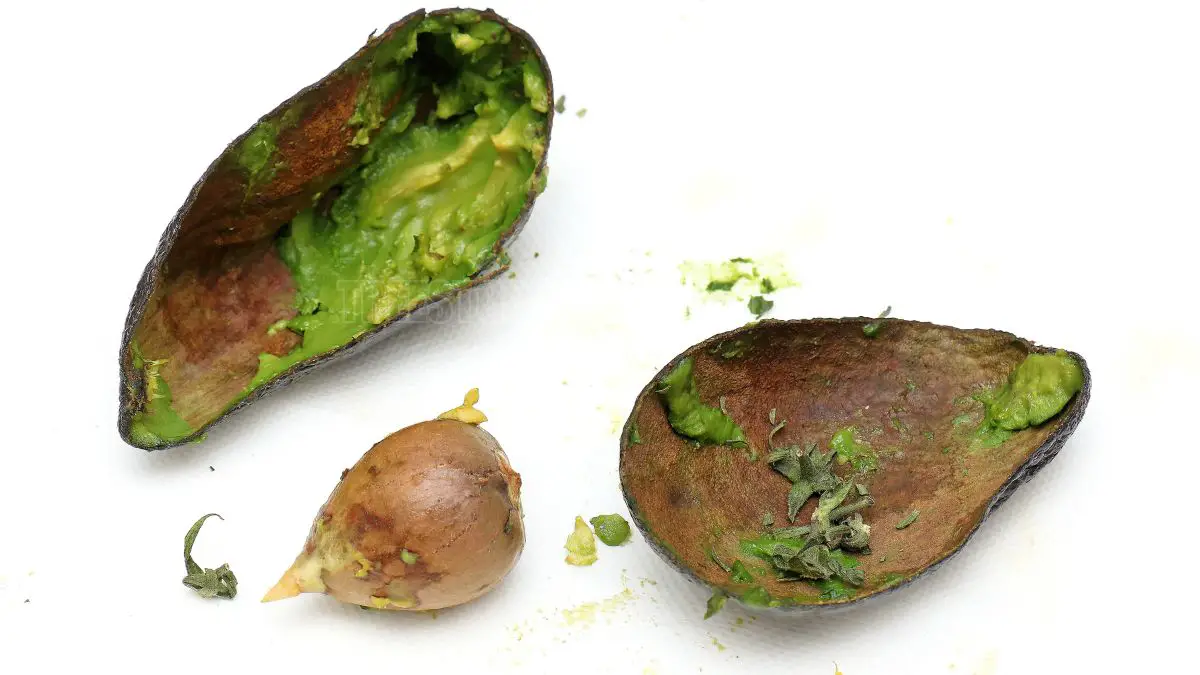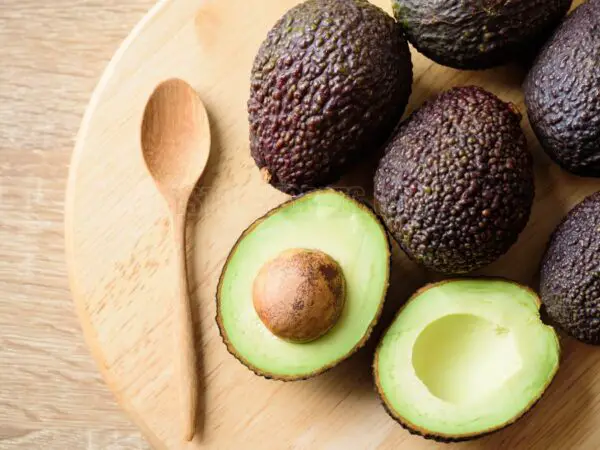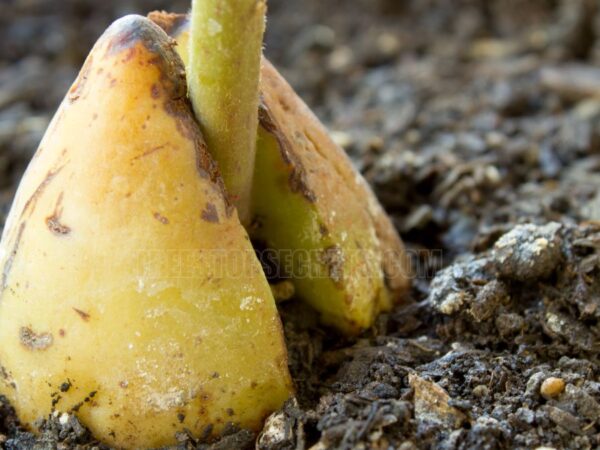Avocados are celebrated for their creamy texture and health benefits, but have you ever wondered about the skin? Many people question whether avocado skin is edible or just a waste product. In this article, we’ll explore whether you can safely eat avocado skin, its potential benefits, and what you should consider before incorporating it into your diet. Get ready to uncover the facts and make informed choices about this often-overlooked part of the avocado.
Avocado skin is technically edible, but it’s not commonly consumed. The skin is tough and bitter, making it less appealing for most people. While it does contain some nutrients, such as fiber and antioxidants, the texture and taste can be unpalatable. Cooking or blending the skin might improve its texture, but it’s usually best to stick with the flesh of the avocado for a more enjoyable eating experience.
Are you intrigued by the idea of eating avocado skin but unsure if it’s worth trying? This article will guide you through everything you need to know—from the potential health benefits to practical tips for incorporating avocado skin into your meals. Learn how to make the most of this nutritious part of the avocado and decide if it’s right for you. Don’t miss out on these insightful details!
Avocado Nutrition Breakdown
Adding avocados can be a game-changer, not just for their creamy taste but for their packed health benefits. Let's dig into what makes them such a nutritional gem.
Why Avocados Should Be On Your Plate
Avocados aren't just a pretty face (or a tasty one). They've got serious health creds. For instance, these green goodies can keep your heart happy by boosting HDL cholesterol (the good kind) and cutting down on oxidized LDL cholesterol. Plus, they're loaded with potassium and magnesium, which are great for keeping your blood pressure in check (Healthline).
And here's the kicker: Avocados can help when you're trying to keep the pounds off. Despite being calorie-rich, they're packed with fiber and healthy fats that keep you feeling full, so you're less likely to snack yourself into weight gain.
| Health Perk | What It Does |
|---|---|
| Heart Health | Boosts HDL, cuts down on oxidized LDL |
| Weight Management | Keeps you feeling full, helps avoid weight gain |
| Cancer Prevention | Links to lower risks for certain types of cancers |
What's Inside an Avocado?
These green gems are bursting with essential nutrients that'll have your body saying "thank you." They’re like a mini pharmacy in fruit form.
- Carotenoids: These guys fight inflammation and take out harmful free radicals.
- Vitamins: Immune system boosters like Vitamin C and E that keep your skin glowing and defenses strong.
- Phenolic Compounds: Hardcore antioxidants that contribute to overall well-being.
Here's a quick breakdown of what you get in 100 grams of this green magic:
| Nutrient | Amount |
|---|---|
| Calories | 160 |
| Total Fat | 15g |
| Saturated Fat | 2.1g |
| Carbohydrates | 9g |
| Fiber | 7g |
| Protein | 2g |
| Vitamin C | 10mg |
| Vitamin E | 2.07mg |
| Potassium | 485mg |
Don't toss those peels just yet! Yep, avocado skins are not only eatable but also pretty darn good for you. They've got a mix of antioxidants like carotenoids, phenolic compounds, and flavonoids that help fight inflammation and free radicals. So, munching on avocado skin could be another way to amp up your health routine.
Real-Life Avocado Hacks
Let's get practical. Ever find yourself juggling breakfast options? Mash up an avocado on toast, sprinkle with a little salt and pepper, maybe a dash of lemon juice. Boom! You've got a morning boost that'll keep you satiated till lunch. Or toss some chunks into a smoothie for that creamy texture and nutritional punch.
Got a face mask recipe that needs a kick? Avocado has you covered here too. Mix some mashed avocado with honey and yogurt, apply to your face, and let your skin soak in the magic.
Conclusion
Alright, time to make avocados a regular in your meals. Their benefits go beyond the kitchen, providing a nutrient boost that leaves you feeling great. So, don't just admire them in the store—grab a few, and let the health benefits roll in!
Eating Avocado Skins
When I first heard, "Can you eat avocado skin?" I was taken aback. Turns out, you can! Let me dish out what I've discovered about chomping down on avocado skins and why it's a game-changer. Plus, some yummy recipes to try out.
Are Avocado Skins Safe and Beneficial?
We often sideline avocado skins, missing their health perks. Packed with antioxidants like carotenoids, phenolic compounds, and flavonoids, these tough guys battle inflammation by zapping free radicals.
Sure, some folks might not love the texture or tannins, but give the skin a good wash and you're good to go. Interestingly, these peels might stash more antioxidants than the creamy flesh itself (Medical News Today#FAQs).
Here's a cheat sheet on what avocado skins offer:
| Nutrient/Compound | Benefit |
|---|---|
| Carotenoids | Help tame inflammation |
| Phenolic Compounds | Rock those antioxidant vibes |
| Flavonoids | Shield cells from damage |
| Vitamin C | Boosts skin health |
| Vitamin E | Keeps skin smooth and elastic |
Research even highlights avocado peels as key players in keeping inflammation at bay.
Tasty Avocado Skin Recipes
If you're up for a dietary twist, here are two easy-peasy recipes featuring avocado skins:
- Avocado Peel Tea
- Ingredients:
- 1 clean avocado skin
- 2 cups water
- Instructions:
- Boil water.
- Chuck in the washed skin and let it simmer about 10 mins.
- Strain into a cup and sip away. Toss in honey or lemon if that’s your thing.
This tea brings anti-inflammatory goodness, just like your usual brew.
- Avocado Skin Smoothie
- Ingredients:
- Flesh of 1 ripe avocado
- 1 washed avocado skin (no hard bits)
- 1 banana
- 1 cup spinach
- 1 cup almond milk
- Instructions:
- Blend everything until smooth.
- Pour into a glass and slurp a nutrient-packed smoothie.
Adding avocado peels into these recipes not only boosts nutrients but also slashes waste. It’s an easy way to be healthier and kinder to the planet.
Wrap Up
Eating avocado skins might sound odd, but it's worth a shot. They're loaded with health benefits and can jazz up your recipes. So, next time you slice an avocado, think twice before tossing the skin!
Avocado Seeds
Why Avocado Seeds Deserve a Second Look
You know that pit you usually toss? Turns out, avocado seeds are packed with the good stuff your body craves. They are like these unsung heroes brimming with nutrients, fighting off diseases and keeping your heart happy. Here's the lowdown on what's inside:
| Nutrient | Estimated Amount per Seed |
|---|---|
| Fiber | 13 - 19 g |
| Antioxidants | High |
| Potassium | 450 mg |
| Magnesium | 60 mg |
Getting that fiber can really help balance your blood sugar, and the antioxidants are like your body's personal defense squad. Not to mention, potassium and magnesium keep things ticking nicely for your heart (Medindia). Tossing the seed? Think again. They help reduce chronic inflammation too.
Sipping on Avocado Seed Tea
Ever thought of making tea from avocado seeds? I hadn't either, until I gave it a go. It’s pretty straightforward: dry out the seed, grind it up, and steep it in hot water. Boom—nutritious tea! Here's what it can do for you:
- Cozy Up to Less Inflammation: Help your body fight off that unwanted inflammation (Medindia).
- Heart's New Best Friend: The minerals in avocado seeds are a VIP pass to better heart health.
- Weight Watcher's Buddy: Low-cal and fiber-rich, this tea can support your weight goals.
- Sugar Sheriff: Balancing your blood sugar just got easier, thanks to this tea (Medindia).
Discovering avocado seeds' worth has me hooked. Imagine making the most out of your avocados, right down to the pit. So, next time you’re scooping out that creamy goodness, remember the benefits hiding in the seed. Give it a try—you might just stumble upon your newest health secret.
Growing Avocado Trees
Got a love affair with avocados? Then growing avocado trees at home is your dream come true. Here's your crash course for turning that pit into a fruitful beauty.
Tips for Growing Avocado Trees
- Picking Your Avocado Buddy: You've got options like Hass, Fuerte, and Bacon. I'm all about the Hass – think creamy, dreamy goodness.
- Prepping the Pit: Grab that pit, clean it up nice and good, then poke three or four toothpicks in it. Let it hang out over a glass of water with just its bottom dipped in.
- Sunshine Love: Avocado trees are sun worshippers. Find them a cozy spot where the sun doesn’t scorch but keeps them warm with indirect light.
- Easy on the H2O: Keep the soil moist but not drowning. Overwater and you'll be dealing with root rot – trust me, it's a bummer.
- Soil Matters: Go for sandy or loamy soil that drains well. Mixing in compost will give it that nutrient-rich kick.
- Warmth is Key: Avocados hate the cold. Keep them comfy at 60°F and above. Frost is their mortal enemy.
| Factor | Sweet Spot |
|---|---|
| Sunlight | 6-8 hours, indirect |
| Watering | Moist, not swampy |
| Soil Type | Sandy/loamy |
| Temperature | 60°F (15°C) and up |
Harvesting and Caring for Avocados
Once your avocado tree starts to fruit, the real fun - but also the real work - begins.
- Testing Ripeness: Give it a gentle squeeze. If it yields a bit, game on.
- Safe Harvesting: Use pruning shears instead of yanking the fruit off. Less mess, no stress.
- Storage Tips: Let them ripen at room temp. Once they’re perfect, refrigerate to keep them fresh longer.
- Keep It Up: Post-harvest, stay on top of pruning and watering. Your tree still needs TLC.
| To-Do | How-To |
|---|---|
| Harvesting | Pruning shears, not hands |
| Ripeness | Gentle squeeze test |
| Storage | Room temp to ripen, fridge to keep |
| Ongoing Care | Prune, water, repeat |
Stick to these pointers, and you’re looking at a home-grown avocado feast. Plus, you get the bonus bragging rights of being an avocado whisperer.
How Avocados Help Your Health
Avocados: Defenders Against Disease
Eating avocados can pack a punch when it comes to staving off illness. Research shows they might just be a heart’s best friend. How? By boosting that good HDL cholesterol and taking down the bad oxidized LDL. Plus, with loads of potassium and magnesium, they’re like tiny, green heart protectors keeping your blood pressure in check (Healthline).
But wait, there’s more! Avocados are loaded with antioxidants like carotenoids, phenolic compounds, and flavonoids. These bad boys fight off inflammation and free radicals like a champ. And the skin’s got persin, which has shown some promise in taking on breast cancer cells in labs. Eating avocados might even help dodge certain cancers—talk colorectal, lung, and bladder. Just one serving a week could help cut down those risks.
| Why Avocados Rock | What They Do For You |
|---|---|
| Heart Health | Boosts HDL, lowers LDL, keeps blood pressure chill |
| Cancer Foe | Might help keep some cancers at bay |
| Anti-inflammatory | Fights inflammation with power-packed antioxidants |
Avocado Magic for Your Skin and Waistline
Beyond keeping you fit on the inside, avocados can be your skin’s bestie too. Women consuming avocados saw their skin get more elastic and firm. No joke, a study even backed this up (WebMD).
And about that waistline—don’t let the calories fool you. Avocados’ fiber and healthy fats keep you feeling full longer, helping you eat less overall. Pimples to pounds, eating avocados regularly can help keep your weight steady and trim down that belly fat.
| How They Help | What They Do |
|---|---|
| Skin Love | Makes skin firmer and more elastic |
| Weight Wise | Keeps you fuller longer, helps control weight, trims belly fat |
So, adding avocados to your plate not only tastes great but also boosts your well-being. Whether you chow down on the flesh or venture into the skin, you’re in for a nutritious treat.
Avocado Benefits: What Science Says
Hey folks, let’s talk avocados. Those green, creamy wonders are not just for guacamole. Check out what the brainy folks in lab coats have discovered about this superfruit.
Eating Avocados: What’s the Deal?
Science backs up what we’ve all suspected: avocados are good for you. Here’s the scoop:
You munch on avocados regularly, and guess what, in about three months, you could be thinking clearer. One study found adults packing a few extra pounds started performing better mentally after 12 weeks of avocado intake (WebMD). So maybe, switching out your regular snack for some avocado toast might give you that extra brain boost you’re looking for.
On top of that, these green gems can help keep your blood sugar steady, which is crucial if you’re watching your health. And they pack a punch against chronic inflammation, giving your body some much-needed relief.
| What It Does | Why It Helps |
|---|---|
| Brain Boost | Sharper mental abilities after a few months. |
| Sugar Control | Keeps your blood sugar in check. |
| Anti-inflammatory | Reduces chronic inflammation. |
Avocados: More Than Just Brain Food
Let’s talk vanity for a second. Do you want firmer, more elastic skin? Avocados might be your new best friend. Studies have shown that adding avocados to your diet can make your skin look better, especially for women. So, your skin-care routine might need a diet upgrade too.
But it’s not all sunshine and rainbows. If you’re on blood-thinning meds like Warfarin, avocados might mess with your medication, making it less effective (WebMD). That’s a fairly big deal, so keep that in mind and chat with your doc before you dive into an avocado feast.
| Health Benefits | Why You Should Care |
|---|---|
| Skin Health | Firms up your skin, ladies! |
| Medication Interference | May reduce the impact of blood thinners. |
So, there you have it. Avocados are not just tasty but bring a lot to the table health-wise. From making you think sharper to taking care of your skin and even aiding your blood sugar levels, they’re truly a powerhouse. Just remember, if you’re dealing with certain meds, it’s better to play it safe and talk to your doctor.
Go on, add a little green to your plate and enjoy the perks!
Final Thoughts
Eating avocado skin is possible, but it’s not for everyone. While it contains some beneficial nutrients, the tough texture and bitter taste might make it unappealing. If you’re interested in trying it, consider blending or cooking the skin to improve its palatability. Ultimately, the flesh of the avocado remains the most enjoyable and versatile part to include in your diet.
FAQs about "Can You Eat Avocado Skin?"
Q: Is avocado skin safe to eat?
A: Yes, avocado skin is safe to eat, but it’s not commonly consumed due to its tough texture and bitter taste. If you choose to eat it, ensure it’s thoroughly washed and consider cooking or blending it to improve its texture.
Q: What are the benefits of eating avocado skin?
A: Avocado skin contains fiber, antioxidants, and some nutrients. However, these benefits might not outweigh the unpleasant texture and taste for many people.
Q: How can I prepare avocado skin if I want to eat it?
A: To prepare avocado skin, try washing it thoroughly, then cook or blend it to make it more palatable. Adding it to smoothies or soups can help mask its bitterness.
Q: Can eating avocado skin cause any health issues?
A: Eating avocado skin is generally safe, but it might be hard to digest for some people. If you have digestive issues or allergies, it’s best to consult with a healthcare professional before consuming avocado skin.
Q: Are there any recipes that use avocado skin?
A: Recipes that use avocado skin are rare, but you can find some creative ideas online. Consider incorporating it into smoothies, soups, or even homemade chips after proper preparation.
Q: Can I use avocado skin in skincare?
A: Yes, avocado skin can be used in DIY skincare. It contains antioxidants and vitamins that may benefit your skin. Simply blend it into a mask or scrub for potential skincare benefits.
Image Source: Paid image from CANVA





